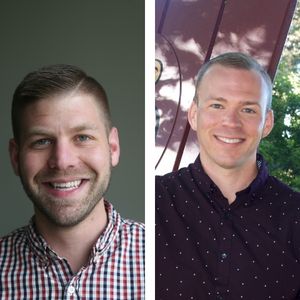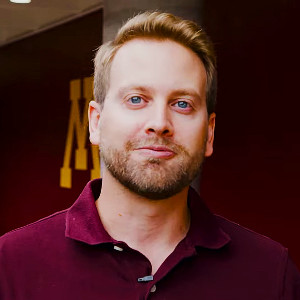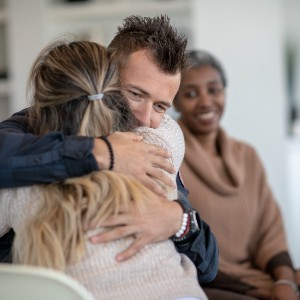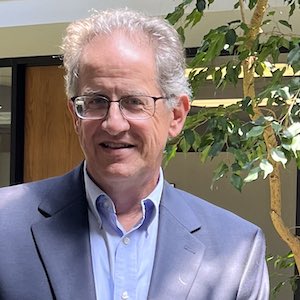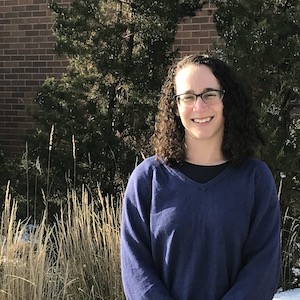Fiyyaz Karim is a resident faculty member in the Master of Professional Studies in Integrated Behavioral Health and Master of Professional Studies in Addictions Counseling programs. Prior to working in higher education, he worked in a variety of community mental health outpatient settings, many geared toward addressing the needs of underserved and minority populations. He has conducted professional training and presented at conferences on an array of diversity issues, including microaggressions, cultural appropriation, and racial identity. He earned his bachelor's degrees in psychology and sociology from the University of Minnesota and his PsyD from the University of St. Thomas. He is a 2020 UPCEA Bethaida “Bea” González Diversity in Leadership Scholar.
College of Continuing & Professional Studies: What did you do before coming to CCAPS and what is your current role?
Fiyyaz Karim: Prior to CCAPS, I was working as a counselor at the Wellness Center through Saint Mary’s University of Minnesota and teaching in their Master’s in Mental Health Counseling as an adjunct instructor. I was also teaching as an adjunct professor at Saint Kate’s University in their undergraduate psychology program. Currently, I’m teaching IBH/ADDC foundational courses such as Group Work and Multicultural Counseling, as well as classes around the intersection of career and mental health and counseling grief and loss.
CCAPS: What do you like about working for universities?
FK: I’ve always been attracted to academia and working for a university. For me, teaching at the University of Minnesota especially on the St. Paul campus means coming full circle, since not only did I start my journey here at the U, but also lived on the St. Paul campus my first two years as an undergrad. What I love about working for a university, and the ADDC/IBH programs specifically, is being able to help train future clinicians in the mental health field.
"What I love about working for a university, and the ADDC/IBH programs specifically, is being able to help train future clinicians in the mental health field."
CCAPS: What drew you to this field?
FK: Initially, I was drawn to the research aspect after taking the Introduction to Psychology course as an undergrad at the University of Minnesota. Majoring in both Psychology and Sociology with an emphasis in Law, Crime, and Deviance, I was especially interested in social justice issues. This was reinforced by my time both teaching ESL for a semester abroad in Thailand and serving as an Americorps volunteer in New York City, working with underserved populations after graduating with my bachelor’s degree.
CCAPS: Talk a little bit about your areas of specialization.
FK: One main area I'm focused on is grief and loss, specifically disenfranchised losses such as divorce and unemployment. It’s an area that still remains very taboo in our society, and as a result, there’s been a gap in both the research as well as training for mental health clinicians. I have developed a specialization in different trauma-focused treatments for PTSD as well as health psychology areas like chronic pain and sleep disorders. Lastly, the area of social justice is one I’m very passionate about, specifically issues like microaggressions and cultural appropriation, and I continue to do training in the community around these areas.
CCAPS: What do you think are the challenges facing today's counselors?
FK: Budget cuts could definitely have significant implications for the work counselors do in the future, whether it’s funding for various programs or health care coverage. Availability and accessibility of mental health services can also be a challenge for many of the clients we serve.
CCAPS: How do you see the ADDC and IBH programs fitting into the profession?
FK: Both ADDC and IBH programs address the growing need for clinicians to serve clients better with co-occurring mental health and substance use disorders. In the past, mental health disorders and addiction concerns were often treated separately; we now know that co-occurring mental health and substance use disorders impact one another and must be treated together. ADDC and IBH programs assist in bridging this gap in training for future clinicians.
CCAPS: What sort of advice would you give to prospective students considering these programs?
FK: Talk to someone who’s currently in the programs to get their take on the overall experience. It’s one thing to read up about the programs online or talk to faculty and staff about questions they may have, but reaching out to students who are taking courses, on internship, maintaining that work-life balance, will give prospective students a better sense of whether or not the programs are a good fit for them.
Tip for Future Students
Reaching out to students who are taking courses or an internship, who are maintaining that work-life balance, will give you a better sense of whether or not the programs are a good fit.





